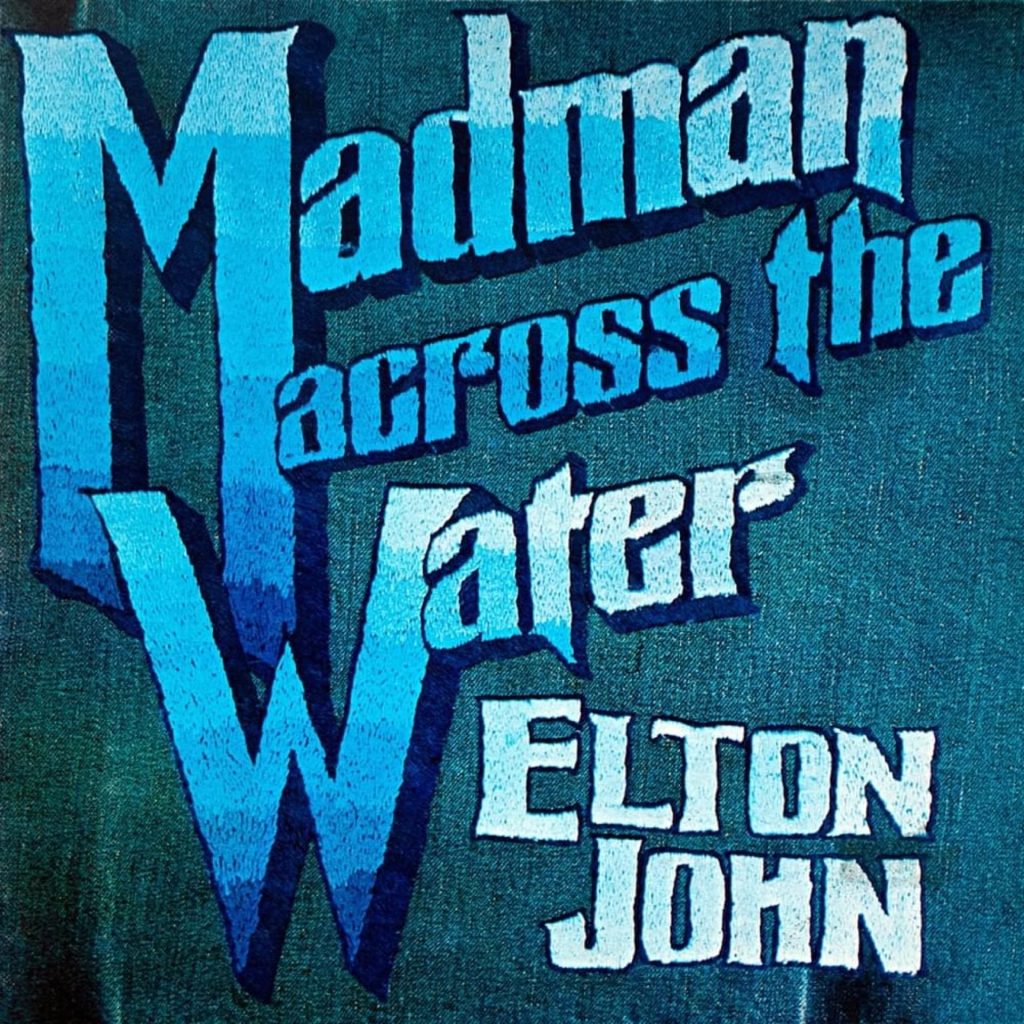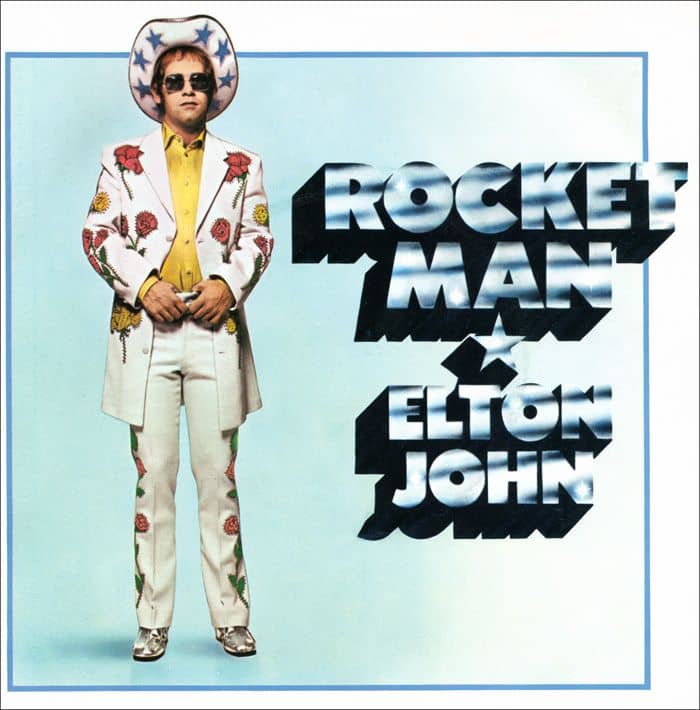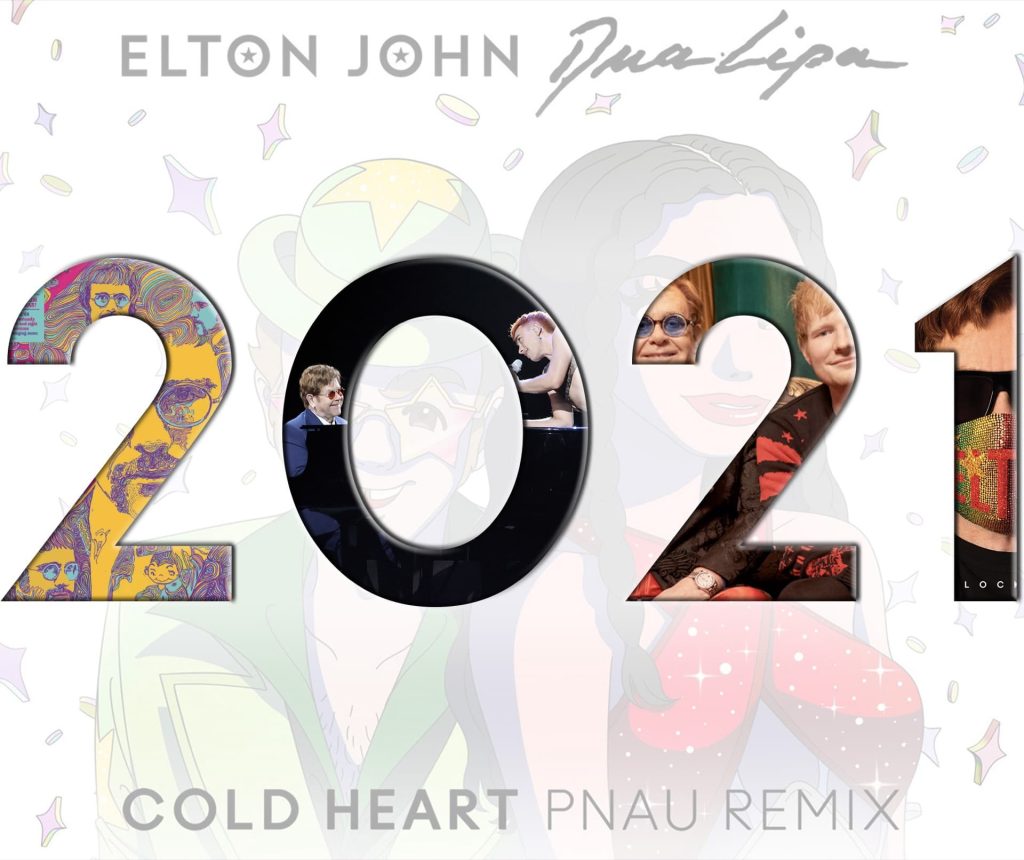Close
Menu
Madman Across The Water: In the Studio
Elton’s 4th studio effort, ‘Madman Across The Water’, was released in November 1971. Its 50th Anniversary Edition will come out on June 10, so let’s take this opportunity to see how the album was made and its context at the time of issue.
By John F. Higgins
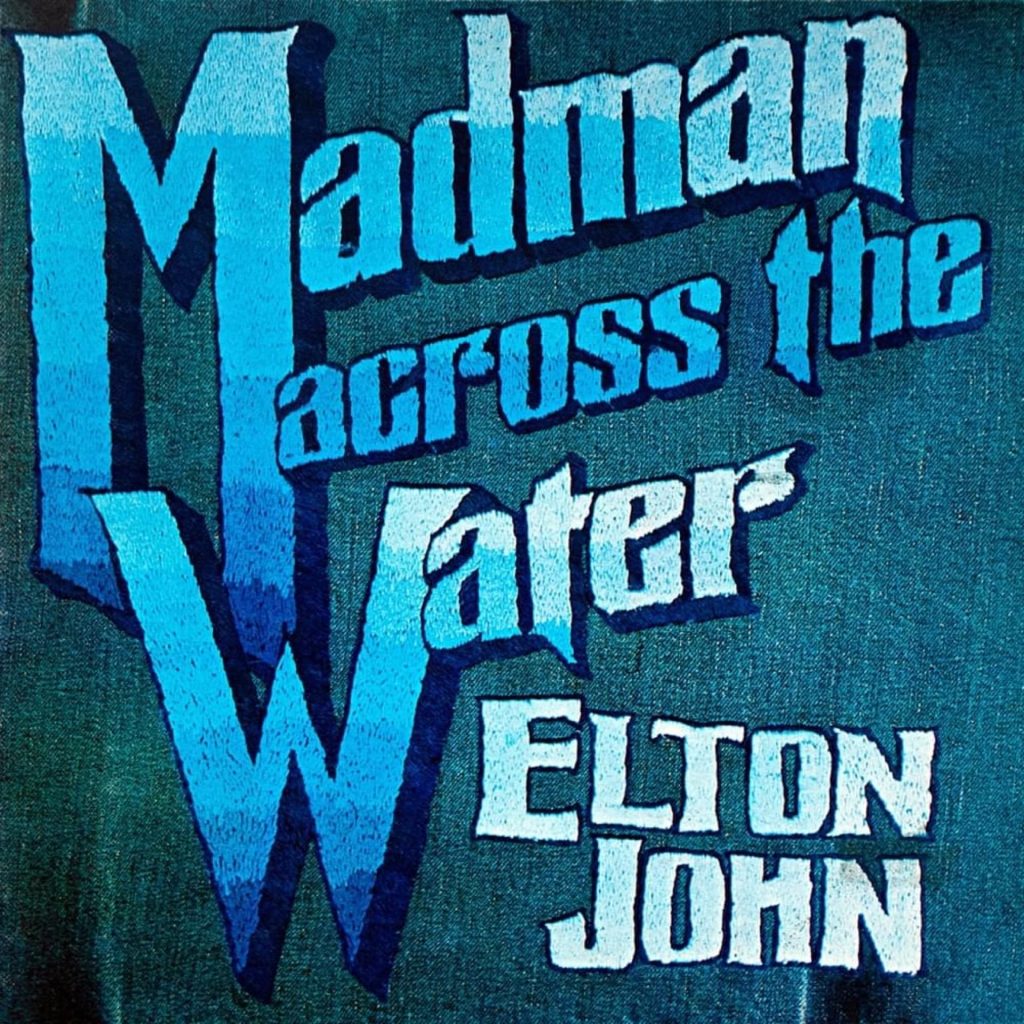
Madman Across The Water, Elton’s last truly FM radio-friendly LP, was, for a moment anyway, nearly his last record period. So busy had he been over the previous year and a half (more on that in a moment) and so harsh was the now-overlooked criticism he was receiving from critics and the general public, he was drained by the end of creating this album. He told journalist John Tobler in 1973 that Madman, “in fact has been the most personal and painful album to make.”
Consider that in the time since Elton began recording his eponymous LP, just 19 months prior to starting the Madman sessions, he had completed three tours each of the US and UK (in fact, the 1971 sessions at Trident had to be scheduled around 61 of his concerts across the US, Japan, Australia, and the UK) and released no less than four albums!
“I'd wanted to do this kind of uncluttered album when we cut Madman. In the end it was cut because we had to do an album, it was very painful. It was done under pressure and really tortured out of us, and I think it's remarkable that it turned out as well as it did.”
All of this road work slowed down the writing of new songs for the album considerably. Elton and Bernie had already pretty much gone through the backlog of material that filled their first three albums. As Bernie said during a November 1970 interview on WNEW Radio in New York, “During the last year we haven’t written as much as we did because we’ve been doing so much.” They considered including two songs that Elton had recently recorded, Honey Roll and Can I Put You On, but both were instead designated for the movie Friends earlier in the year.
Bernie also noted that all the traveling they were doing (the lyricist went out on the road with Elton during this time and joined him for some promotional events) would affect the lyric content of their material.
Indeed, it already had. There is no better evidence of that than the songs that open each side of the LP. Tiny Dancer is a love letter to the vibe, weather, and especially women of California who Bernie observed during his first trip there in August 1970. He noticed immediately the difference from the British environment he had grown up in, later saying how listening to the song over time reminded him of driving down the warm L.A. freeways with the radio on and the windows open, amongst a virtual ocean of swaying hips in faded denim bell-bottom jeans.
And then there is Indian Sunset, song one on side two of the vinyl. With all of his already fertile British imagination creating wonderfully evocative stories of the Old West and other Stateside things he read about in books or heard in songs by Marty Robbins and the like, actually seeing what was going on in the US gave the Lincolnshire lyricist a much deeper appreciation of the plight of Native Americans.
With all the hubbub surrounding the writing and recording of the album, it still landed with his new fans (all of his fans were “new”, he’d been making albums for just a couple of years!) and many critics:
- [Madman Across the Water] represents – on balance – the best work yet by the English singer-songwriter-pianist whose success in the last 14 months has been nothing short of phenomenal. – Robert Hilburn
- Madman Across The Water should quench the thirst of those who spotted Elton “back when.” But, more importantly, it should please even some of the harshest critics. … Years from now people may look back on this as the definitive Elton John album. – Circus magazine
- Elton’s latest album is certain to reassure those who’ve always maintained, in the face of heavy crossfire, that John and Taupin are endowed with more than the average talent. – Melody Maker
Over the past half-century, Madman Across The Water has established itself solidly in the hearts of Elton fans of all ages, and the artist himself. Elton plays no less than three songs from it during his Farewell Yellow Brick Road Tour.
Even his most public fan can’t resist giving a shout-out. As Brandi Carlile prepared to record her breakthrough album, By the Way, I Forgive You (2018), she and her producer sat down to share their influences.
“The first thing Dave [Cobb] put on was an album called White Mansions; it had influenced him damn near completely and he wanted us to understand where he was coming from. I chose Elton John’s Madman Across the Water and Joni Mitchell’s Blue as my go-to albums.”
“If it is possible to listen then to this [album] as though he were something new and un-heard of (and it is because I did it myself) you will realise that the man is still bursting with unexplored talent and there is still – within that stocky frame – a music man of immense feeling and power.”
MADMAN ACROSS THE WATER TRACK-BY-TRACK
Tiny Dancer
Written in late 1970
Recorded: August 9, 1971 – Take 4
Musicians
Elton: piano and vocals / Roger Pope: drums / David Glover: bass / Caleb Quaye: electric guitar / B.J. Cole: steel guitar / Davey Johnstone: acoustic guitar / Lesley Duncan, Sue & Sunny, Barry St. John, Liza Strike, Roger Cook, Tony Burrows, Terry Steele, Dee Murray, Nigel Olsson: backing vocals / orchestra arranged and conducted by Paul Buckmaster.
In a first, Elton revealed a bit of his writing process on the Aquarius television special in 1971. Playing block chords to the lyric sheet perched on his white piano, and still developing his vocal phrasing, he explained, “as soon as you get to the word ‘ballerina,’ you know it’s not going to be fast; it’s got to be sort of gentle and quite slow.”
EltonJohn.com spoke with BJ Cole, the song’s pedal steel guitar player, about his recollections of the sessions for ‘Tiny Dancer’.
“I knew Elton (Reg) because I was in a band called Cochise and the guitar player, Mick Grabham [later in Procol Harum], had been in Plastic Penny, who were published by Dick James Music. Rick Wills was in that band as well, who went on to be in Foreigner, and also, our drummer had been playing with Joker’s Wild, which was the band that David Gilmour had before Pink Floyd. So, although the band Cochise never amounted to a massive thing, I got to meet an awful lot of people who went on to be big. We did our demos in the Dick James Studio, which was legendary, and got to know Reg that way. He was around the office. Just a lovely guy. I sort of identified with him, what with the glasses and everything. And I also got to know Steve Brown, who was the guy that later rang me up to come to Trident.
“They’d used pedal steel on Tumbleweed Connection. Gordon Huntley. He was the top pedal steel player in London at the time; he’d been around for years. So I was very honored to get the call from Steve. He rang me around four in the afternoon and said, ‘Can you come in this evening? Around 10pm.’ So I packed up my Emmons Pedal Steel, imported from America, and off I went!
“The song wasn’t fully arranged when I got there. I said hello to Elton, Gus, Robin, Paul Buckmaster and everyone (I knew all the band, except Davey, from DJM)…set up around 10 or 11 o’clock. And between getting there and finishing around 6 in the morning, we were actually banging the arrangement together – all of us. It’s one of the longest and most complex arrangements he’s ever done, and that’s because we spent about six hours working on it. Paul was mainly there to take notes for writing the string arrangement, some of which came off the pedal steel part.
“Elton was delightful. He was just one of the guys, basically. He was business-like, in a musical way. Relaxed. And we all did the Goon stuff, that was the British humor at the time. That was the sensibility.
“I over-played on that session…to the max [laughing]. I had plenty of time to expand into the role, especially in the middle section where I slide up and down over quite a wide range. Which I normally wouldn’t think of doing. It was very interesting: Gus or Robin didn’t cut in the bits they wanted to use [in the mixing process]; they left it all in and faded me in and out. The strings and the backing vocals were the only things that were added. But I’m very proud of my part and of how I came in at the second verse [before any other band instrument]. There is no other pop record like it, really, in terms of the pedal steel’s contribution.
“It was a very special experience, and it had a major impact on my career. It wasn’t my first session, but it started my career as a session player, really. After that, everybody rang me! I was just working flat out. The pedal steel wasn’t as clear on the vinyl, but as soon as it was mastered for CD, it became much more clear; I think there was some eq’ing going on in the upper frequencies that enhanced the part. I do not play with an ‘American accent’, as British players tend to do on pedal steel, and I am a voyeur, like Elton is. Like Sting is. They take the American style and they reinterpret it. I play like an English pedal steel player who is reinterpreting an American instrument. I take the same role as they do. Elton is passionate about American music. And I am passionate about American music…and an American instrument! And that is the thing that has created my career.
“The session all worked out so well. I think I was in a state of shock after it. Everyone was very jolly. But I had no idea what a big thing it was going to be until I saw ‘Almost Famous’ and they’re all singing it on the bus.”
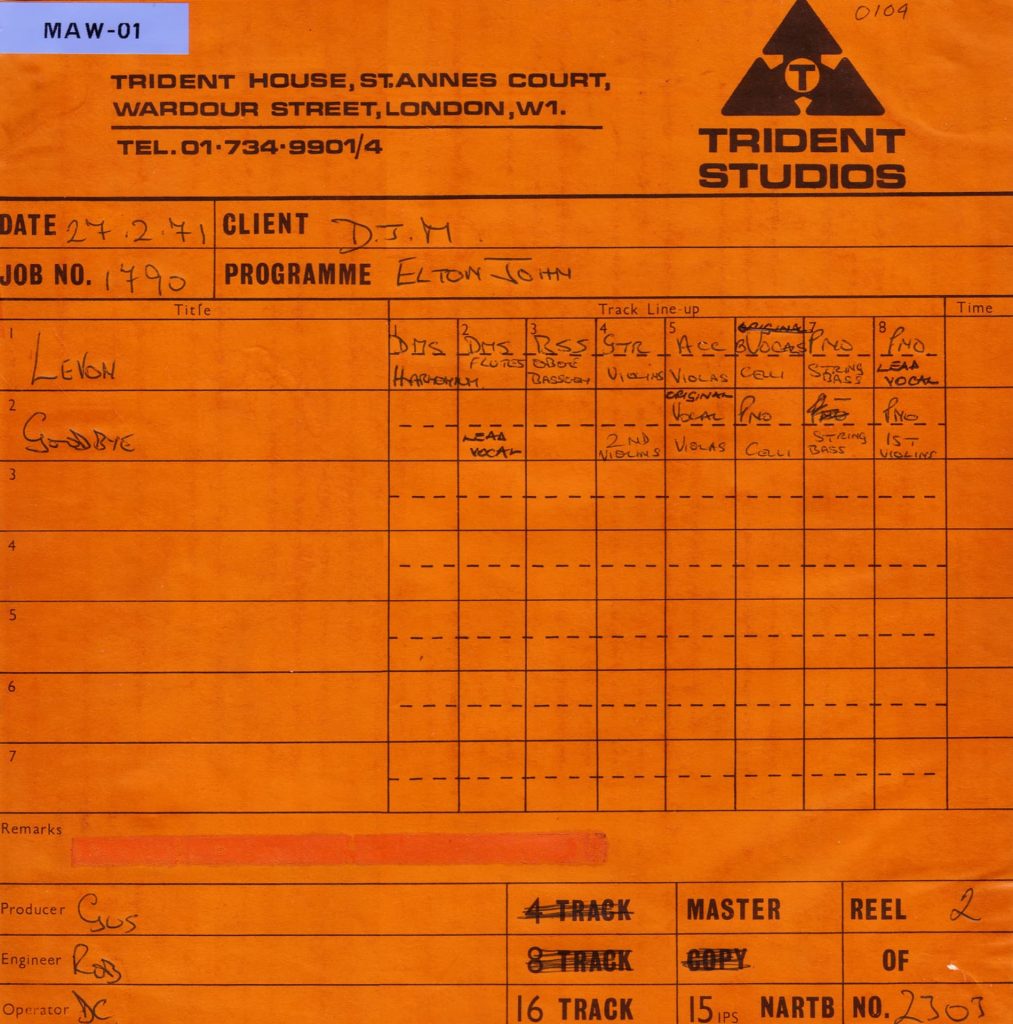
Gus went on to reveal a fortuitous mistake during the song’s recording. “There’s an excellent example of a magic moment from the Madman sessions. It was when Barry Morgan, the drummer on Levon played the drum fill in the wrong place, and it was fabulous. It was during take three or four, and he misread the chart. Barry accidentally jumped down a complete line and carried on playing even though he realized what he’d done. He played a written drum fill in the wrong place. When Barry came up to the control room to listen to the playback, I was grinning my head off. I said, “Barry, that was a … brilliant drum fill. What on earth made you put it there?” He said, “Oh man, I’m really sorry. I screwed up.” I said, “Barry, it was a moment of genius.” He said, “No. No. We’ll have to do another take.” I said, “No way, you’ve got to hear it.” So we played it back, and everybody thought it was brilliant. And he was like, “Are we going to do another take?” I’m going, “No.” And he’s going, “Come on, guys. We have to do another take.” And we’re going, “No.” The only reason it bothered him was that he knew he’d made a mistake, but it was a … brilliant mistake. That doesn’t happen if you are programming music. Then it is all coming from one person’s point of view and not from a dozen or more people. There are no surprises. There are no happy accidents.”
Razor Face
Recorded: August 9, 1971 – Take 10
Musicians
Elton: piano and vocals / Roger Pope: drums / David Glover: bass / Caleb Quaye: electric guitar / Rick Wakeman: organ / Jack Emblow: accordian.
The first of three songs recorded on the Monday, after which they took a break and came back to do two more.
Keyboardist Rick Wakeman was brought in “because I’m the world’s worst Hammond organ player,” Elton said later. This was to be one of Rick’s last sessions before joining the iconic prog-rock band Yes.
The band continued to jam for nearly another two minutes after the album track fades down. This extended version was first released as a 5.1 mix in 2004. Keep an eye out for our upcoming article on the 50th Anniversary Edition for information on its inclusion in that set.
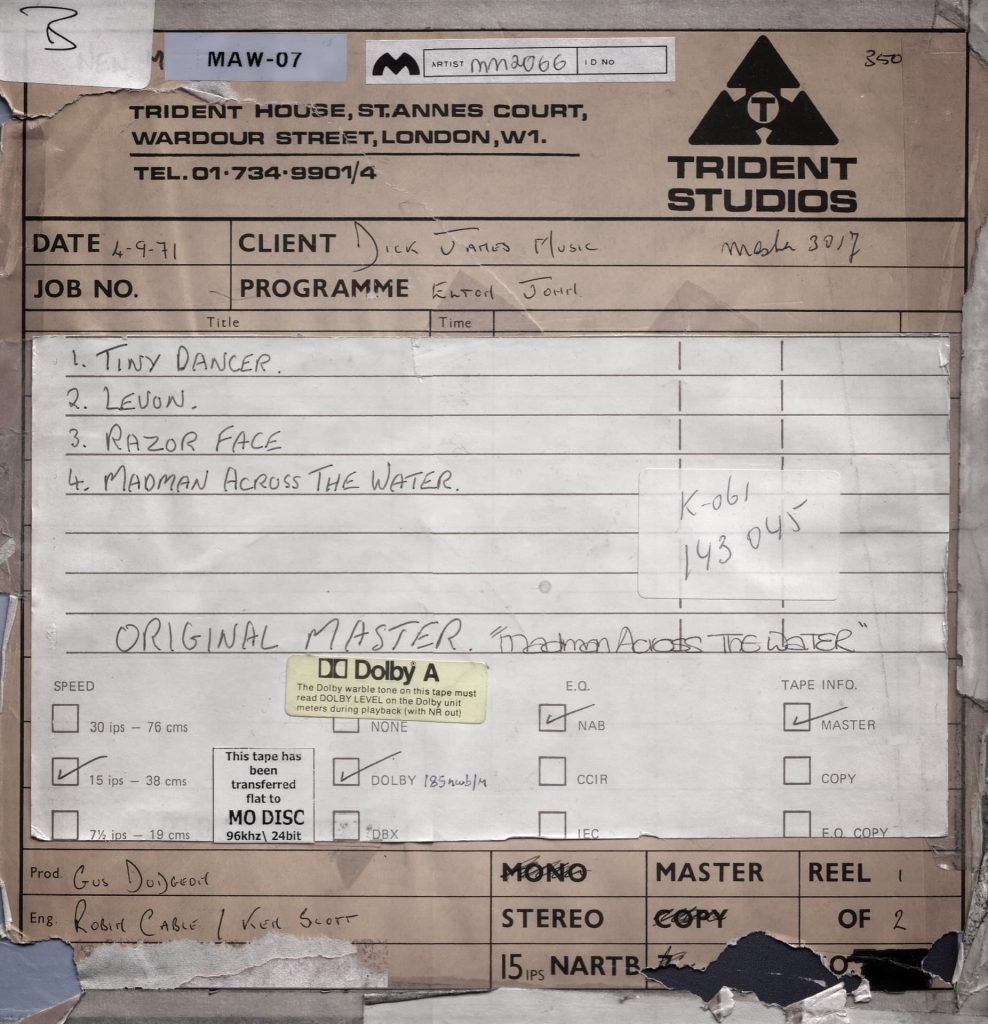
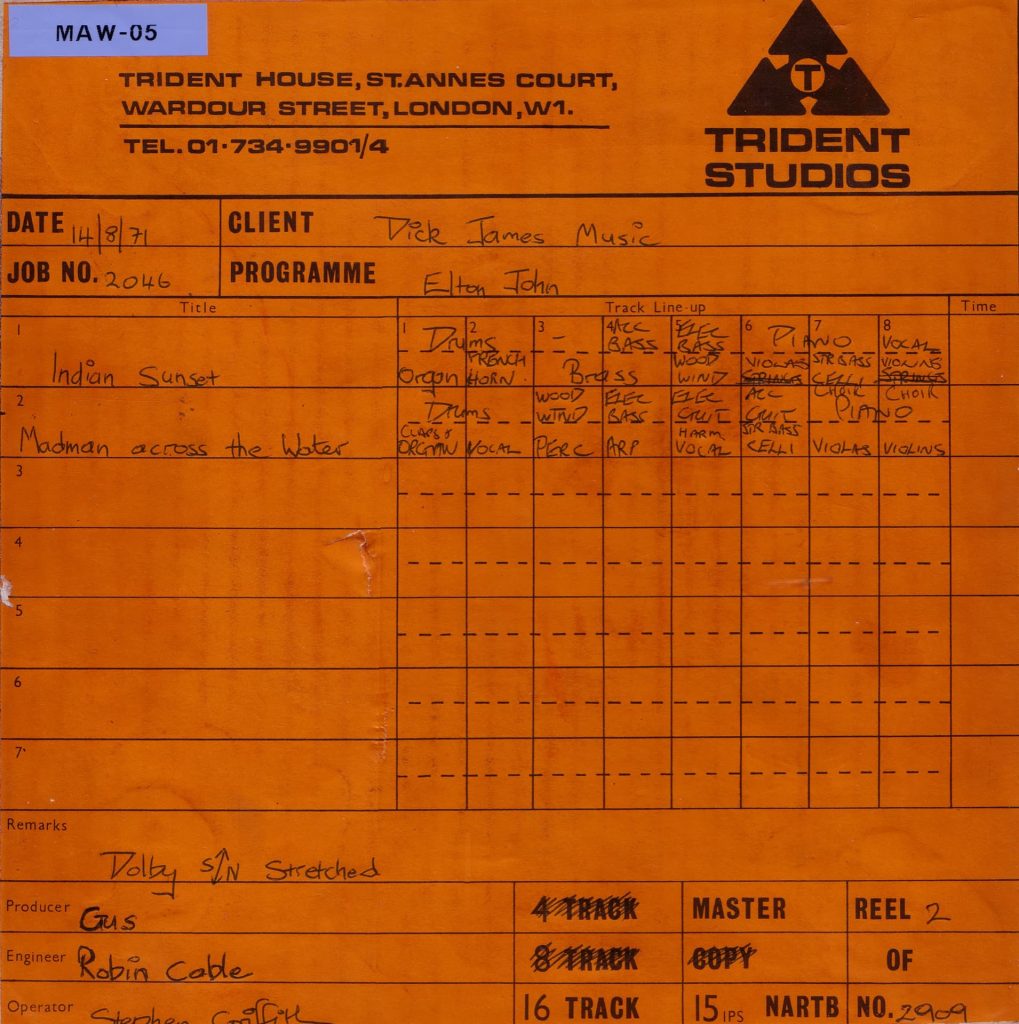
Madman Across The Water
Written on or around April 10, 1970
UK copyright registration: April 10, 1970
Recorded: August 14, 1971 – Take 6
Musicians
Elton: piano and vocals / Terry Cox: drums / Herbie Flowers: electric bass / Davey Johnstone: acoustic guitar / Ray Cooper: percussion / Chris Spedding: electric guitar / Diana Lewis: A.R.P. synthesizer / Rick Wakeman: organ / orchestra arranged and conducted by Paul Buckmaster.
Elton John’s lead guitarist and current Music Director Davey Johnstone’s very first session on an Elton album took place on August 14, 1971, when he was brought in by producer Gus Dudgeon to take a stab at the unique guitar intro to Madman Across The Water. As Gus explained, “When Elton first played me the song, he said, ‘Right, that (opening) lick, I don’t hear it on piano…I really think it’s a guitar lick. An acoustic guitar.’ And I went, ‘Oh man, now this is really complicated!’ Because of its feel and harmonics.”
Having worked with Davey recently on albums by the band Magna Carta as well as Bernie Taupin’s first solo album (of spoken poetry over music), Gus recommended him for the job after a previous attempt at the song with guitarists Michael Chapman and Mick Ronson on May 18, 1970, during the sessions for Tumbleweed Connection did not work out. “So Davey came in and did it,” Gus said. “And then subsequently played on two of the other songs [on Madman Across The Water] because Elton was so knocked out with his playing.”
So knocked out, in fact, that Davey was soon asked to join the band full-time, and has remained with Elton pretty much ever since, appearing on all but a handful of Elton’s studio albums. Davey has also played on every band tour but one that Elton has done since 1972, and now is in charge of much of the behind-the-scenes work on the tours, closely consulting with Elton as to what songs are played on stage each night, and rehearsing the band for each tour.
Not bad for a guy asked to come in and lay down a little A-minor acoustic lick on a Saturday afternoon.
As Davey explained it on his social media in August 2021:
“50 years ago, in August of 1971, I walked into a studio in the Soho district of London. I was a 20-year-old musician who was getting noticed because of my guitar, banjo, mandolin and sitar playing.
“The session was being produced by Gus Dudgeon, already known for his work with David Bowie, Ralph McTell, Mike Chapman and Magna Carta. The artist that day was named Reg, and on meeting this shy but immensely talented guy, I knew I was becoming part of something magical.
“Reg used the stage name Elton John, and he had just done a club tour in the USA with his trio which featured Dee Murray and Nigel Olsson.
“He had woken up a sleepy music scene with his outrageous piano-driven rock and a bunch of irresistible songs penned by himself and lyricist, Bernie Taupin.
“The album Elton John, known as the Black Album, was having radio success in the states and the excitement in the air for his next offering was palpable.
“A couple of great guitar players, Mick Ronson and Mike Chapman had played on what was to be Reg’s new album title track, Madman Across The Water, but the result wasn’t what they’d hoped for, so Gus had asked me to come in and do what I do.
“Reg played me the piano figure he wanted done on acoustic guitar, so I said, ‘Something like this?’
“Cries of ‘That’s it!’ from Gus Dudgeon, Reg, and the brilliant orchestral arranger Paul Buckmaster made me feel I’d nailed it!
“Reg’s next challenge for me was a folky uptempo piece called Holiday Inn, a song they wanted banjo on. I suggested mandolin would work better, and sticking my Scottish neck out further, came up with an intro for the song, then cemented my ‘audition’ by adding a sitar solo which Buckmaster wrote a wonderful Indian style string part around.
“Since that day, I’ve never addressed my dear friend by the name of Reg – it’s only been Elton for me for the past 50 years.”
“This is a number which Bernie and I’ve just written. Fresh off the presses, folks. We wrote it when we went back [to England], after our last visit, and Bernie had been to an Indian reservation.”
Indian Sunset
Written in October 1970
Recorded: August 14, 1971 – Take 9 (primarily)
Musicians
Elton: piano and vocals / Terry Cox: drums / Herbie Flowers: electric bass / Chris Laurence: acoustic bass / orchestra arranged and conducted by Paul Buckmaster / Cantores in Ecclesia Choir directed by Robert Kirby.
One of Elton’s most adventurous songs, both musically and lyrically, this track has made a comeback of sorts – becoming a fan favorite during the Farewell Yellow Brick Road Tour concerts, where Elton has performed it accompanied only by the spirited Ray Cooper on percussion.
Note the two songs Elton recorded during this session: the two longest and most complicated compositions on this album, and way up there for his entire catalog. Elton performed this song live, in front of a totem pole on set, on the Dick Cavett Show (ABC TV) on March 30, 1971. However, the footage appears to have been lost. In 2004, Tupac Shakur sampled vocal lines from Indian Sunset for his song Ghetto Gospel. The single reached #1 in the UK.
Holiday Inn
Recorded: August 9, 1971 – Take 4
Musicians
Elton: piano and vocals / Roger Pope: drums / David Glover: bass / Caleb Quaye: acoustic guitar / Davey Johnston: mandolins & sitar / Lesley Duncan, Sue & Sunny, Barry St. John, Liza Strike, Roger Cook, Tony Burrows, Terry Steele, Dee Murray, Nigel Olsson: backing vocals / orchestra arranged and conducted by Paul Buckmaster.
Another song about America. Specifically, the chain of motels scattered across the country which suited the budget of many a traveling entourage just starting out. Elton, the band, and the small crew visited several roadside establishments during their 1970 and 1971 tours of the US.
The original lyric contained a verse excised before the song was put on vinyl. If you listen to the piano demo, available on the Anniversary Edition as well as Jewel Box, you will be able to feel Bernie’s frustration at life on the road.
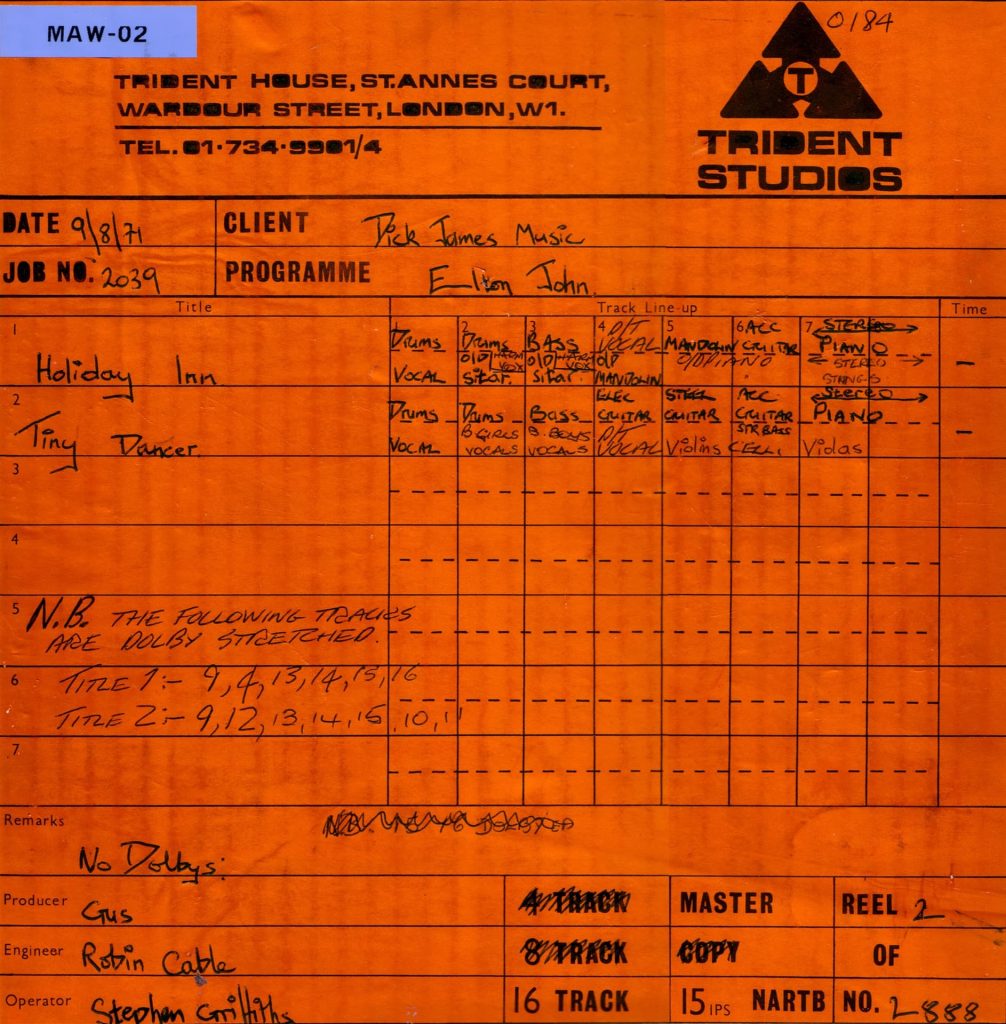
Rotten Peaches
Recorded: 1st attempt: Feb. 27, 1971 / Master: Aug 14, 1971 – Take 11
Musicians
Elton: piano and vocals / Herbie Flowers: electric bass / Terry Cox: drums / Ray Cooper: percussion / Chris Spedding: slide guitar / Davey Johnstone: acoustic guitar / Rick Wakeman: organ/ Diana Lewis: A.R.P. synthesizer / Lesley Duncan, Sue & Sunny, Barry St. John, Liza Strike, Roger Cook, Tony Burrows, Terry Steele, Dee Murray, Nigel Olsson: backing vocals / orchestra arranged and conducted by Paul Buckmaster.
Two albums later, on Don’t Shoot Me I’m Only The Piano Player, Bernie would take a line segment from this song and build an entirely new lyric around it. Have Mercy On The Criminal tells in more detail the story of an outlaw on the run.
All The Nasties
Recorded: August 11, 1971 – 1st session attempt not used / Master: 2nd session – Take 11
Musicians
Elton: piano and vocals / Nigel Olsson: drums / Dee Murray: bass / Ray Cooper: tambourine / orchestra arranged and conducted by Paul Buckmaster / Cantores in Ecclesia Choir directed by Robert Kirby.
In his autobiography, ME, Elton wrote, “I love Madman Across the Water. At the time, it was a much bigger hit in America than in Britain: Top Ten over there, but only number 41 at home. It’s not particularly commercial; there were no huge smash singles, and the songs were much longer and more complex than I’d written before. Some of Bernie’s lyrics were like a diary of the last year. One song, All The Nasties, was about me, wondering aloud what would happen if I came out publicly: ‘If it came to pass that they should ask – what would I tell them? Would they criticize behind my back? Maybe I should let them’. Not a single person seemed to notice what I was singing about.”
Goodbye
Recorded: February 27, 1971
Musicians
Elton: piano and vocals / orchestra arranged and conducted by Paul Buckmaster.
The first and still one of only a few songs that Elton has recorded with just piano and orchestra, the ballad serves as a lovely, if melancholy, respite following the expansive journey of songs that precede it.
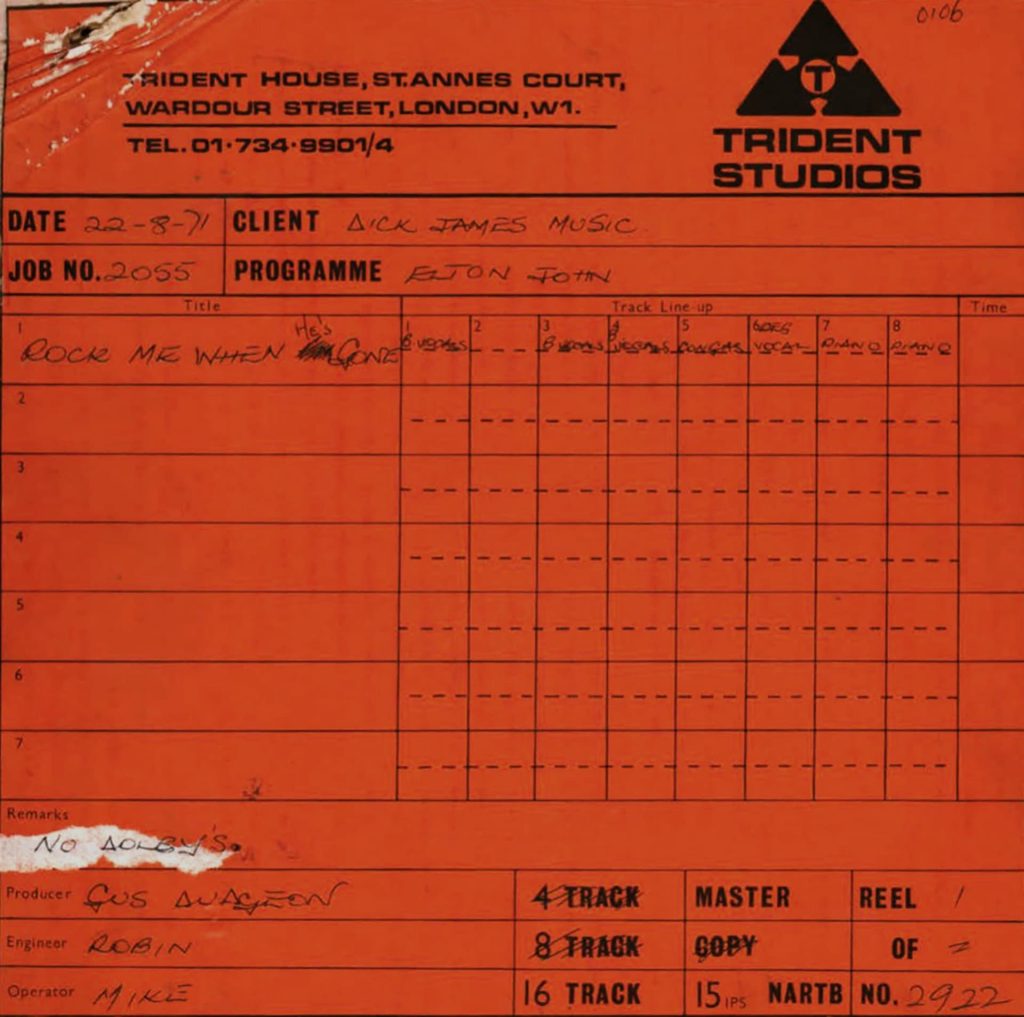
RELEASE/CHART INFO
LPs
Released on November 5, 1971 in the UK. Peaked at #41 on the UK Albums Chart and left after two weeks, replaced immediately by Honky Château, which came in at #2. Currently at Silver award status from the BPI.
Released on November 15, 1971 in the US. Peaked at #8 on the Billboard Top LPs chart for two weeks starting on February 12, 1972, staying on the chart from November 27, 1971 to November 12, 1972. (During this time, Elton did the better part of 6 tours – 3 in the UK, 2 in the US, and 1 in Germany – and recorded and released Honky Château.) Currently at 2x Platinum award status from the RIAA.
UK Singles
There were no singles pulled from the album until Tiny Dancer in 2015.
US Singles
Levon b/w Goodbye
Released on November 29, 1971 on UNI. Peaked at #24 on February 5, 1972 and stayed on the Billboard Hot 100 for 10 weeks, from December 18, 1971, to February 19, 1972. It is currently at Gold status from the RIAA.
Tiny Dancer b/w Razor Face
Released on February 7, 1972 (while Elton was in France recording Honky Château) on UNI. Peaked at #41 on April 8, 1972, and stayed onthe Billboard Hot 100 for 7 weeks, from March 4, 1972, to April 15, 1972. Also peaked at #35 on the Billboard Adult Contemporary chart. It is currently at 3x Platinum status from the RIAA.
Menu

Become a Rocket Club member and exclusive news will make its way directly to your inbox. Be the first to know where Elton will perform next and get your hands on pre-sale tickets.
